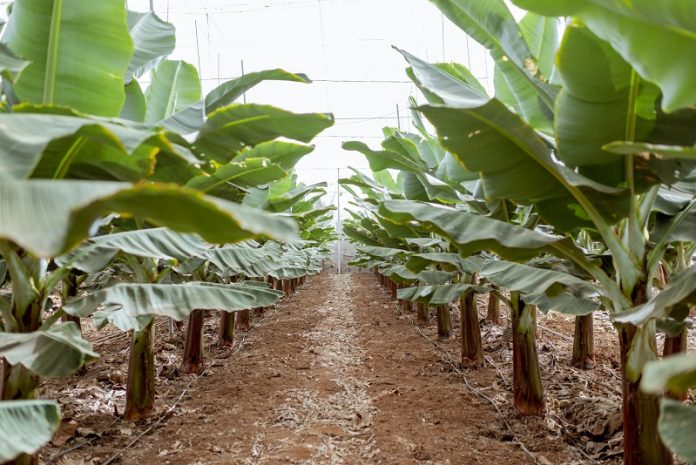
Researchers have successfully developed a banana plant resistant to two of the most harmful diseases affecting bananas: fusarium tropical race 4 (TR4) and black sigatoka.
This new plant, called Yelloway One, is seen as a major breakthrough in banana farming.
Gert Kema, a professor at Wageningen University & Research, said, “We’ve known for a while that breeding can help us develop disease-resistant plants, but now we’ve proven it can be done faster using the latest genetic tools.”
This development comes at a crucial time for the global banana industry.
TR4 and black sigatoka have caused significant damage, leading to losses worth hundreds of millions of dollars. Until now, no banana variety resistant to both diseases was available, putting farmers under immense pressure.
Yelloway One was created using traditional breeding techniques combined with modern DNA analysis.
This helped the team quickly identify and select banana plants with the desired traits, such as resistance to diseases.
TR4 is a fungus that can destroy entire banana plantations, while black sigatoka is a leaf disease that reduces banana yields.
The project was a collaboration between several partners, including Chiquita, KeyGene, MusaRadix, and Wageningen University & Research.
Although Chiquita is involved, Kema assures that other banana growers will also have access to these new varieties. The goal is to make this technology widely available and to improve banana varieties for different markets worldwide.
Currently, Yelloway One is still a prototype being grown in a greenhouse in the Netherlands. The next step is to test it in regions like the Philippines and Indonesia, where TR4 and black sigatoka have caused significant damage. These field trials will help determine how well Yelloway One performs in real farming conditions and whether it can offer a solution for farmers in affected areas.
Yelloway One is just the beginning of the broader Yelloway initiative, which aims to create more disease-resistant and genetically diverse banana varieties. This will help the banana industry become more resilient to disease, climate change, and other challenges. By introducing more variety into banana farming, farmers will be better prepared to handle environmental changes and new threats.
“This development is incredibly important for millions of small farmers in Africa, Asia, and Latin America,” Kema said. He expects that more resistant banana varieties will be developed in the coming years, helping make the banana industry more sustainable and less vulnerable to disease.



